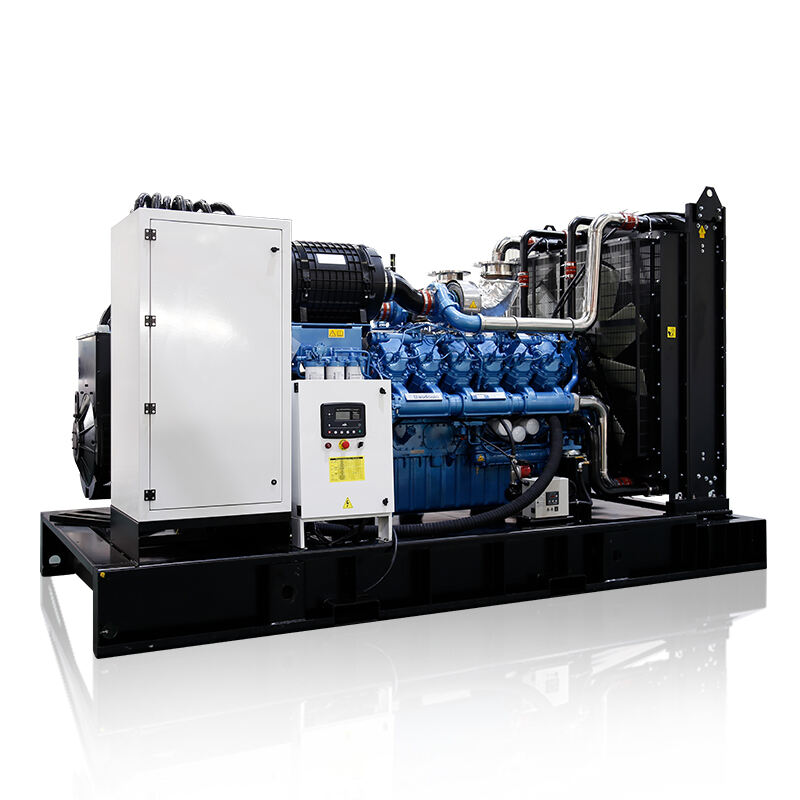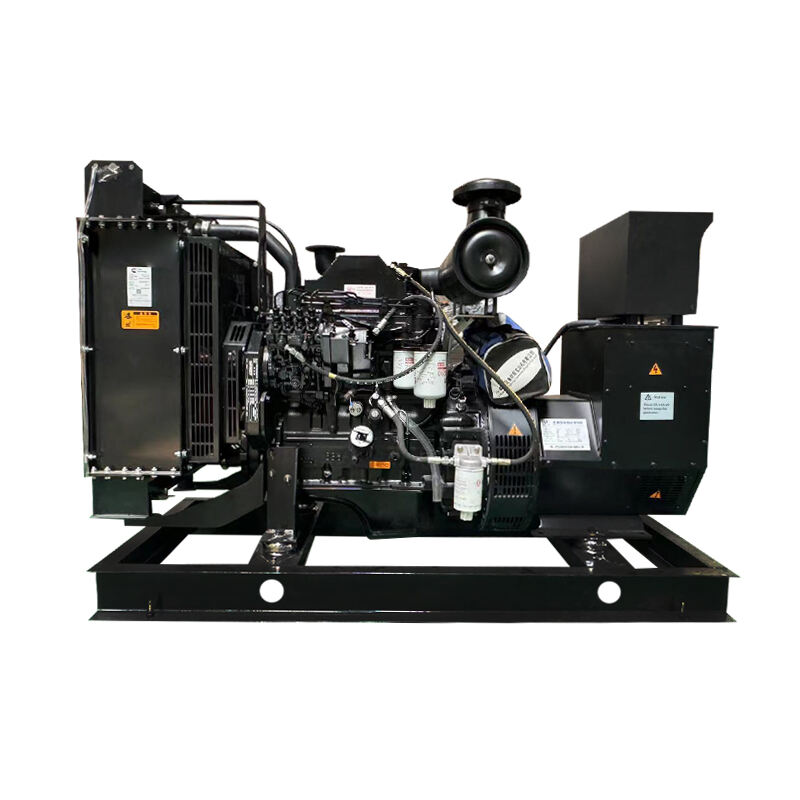Understanding Power Generation Solutions for Commercial Applications
When it comes to reliable power backup solutions, a 30kva generator stands as a crucial investment for medium-sized businesses, construction sites, and commercial facilities. The choice between diesel and gas-powered options can significantly impact your operations, maintenance costs, and long-term reliability. This comprehensive guide explores the key differences, helping you make an informed decision for your power generation needs.
The Fundamental Differences Between Diesel and Gas Generators
Diesel Generator Technology and Operation
Diesel-powered 30kva generator units operate through compression ignition, where fuel is injected into compressed air to create combustion. This process typically delivers higher thermal efficiency compared to gas alternatives. The robust construction of diesel engines allows them to withstand continuous operation under heavy loads, making them particularly suitable for industrial applications and critical backup power scenarios.
Modern diesel generators incorporate advanced fuel injection systems and electronic controls, optimizing fuel consumption and reducing emissions. These technological improvements have addressed many traditional concerns about diesel power generation, including noise levels and environmental impact.
Gas Generator Mechanics and Performance
Gas-powered 30kva generator systems utilize spark ignition technology, similar to conventional automobile engines. Natural gas or propane serves as the primary fuel source, offering cleaner combustion and reduced environmental impact. The simpler combustion process typically results in quieter operation and lower maintenance requirements.
Gas generators have evolved significantly, with modern units featuring electronic fuel management systems and sophisticated voltage regulators. These improvements have enhanced their reliability and performance, making them increasingly competitive with diesel alternatives.

Cost Considerations and Economic Impact
Initial Investment Analysis
The upfront cost of a 30kva generator varies significantly between diesel and gas models. Diesel units typically command a premium price due to their robust construction and specialized components. However, this higher initial investment often translates to longer service life and better resale value.
When calculating initial costs, consider not just the generator unit but also installation requirements, fuel storage systems, and necessary safety equipment. Gas generators generally require less complex installation infrastructure, potentially reducing initial setup costs.
Operational Cost Comparison
Fuel efficiency plays a crucial role in operational expenses. Diesel generators typically offer superior fuel efficiency, consuming less fuel per kilowatt-hour generated. However, diesel fuel prices can be more volatile and generally higher than natural gas rates in many regions.
Maintenance costs also differ significantly. Diesel engines require regular maintenance, including oil changes, filter replacements, and fuel system servicing. Gas generators, while requiring less frequent maintenance, may need specialized technicians for service work.
Performance and Reliability Factors
Load Response and Power Quality
The load handling capability of a 30kva generator significantly impacts its suitability for different applications. Diesel generators excel in handling sudden load changes, providing quick response to power demands. This characteristic makes them ideal for applications with variable power requirements or critical operations.
Gas generators have improved considerably in load response, though they may still lag slightly behind diesel units in handling instantaneous load changes. However, they often provide cleaner power output with less harmonic distortion, beneficial for sensitive electronic equipment.
Durability and Lifespan Expectations
Diesel generators traditionally offer longer operational lifespans, often exceeding 20,000 running hours with proper maintenance. Their robust construction and simpler mechanical systems contribute to their legendary durability.
Gas generators typically have shorter service intervals but may offer comparable lifespan with proper care. Advanced materials and improved design have significantly enhanced their durability, making them viable alternatives for many applications.
Environmental Impact and Regulatory Compliance
Emission Standards and Environmental Regulations
Environmental considerations increasingly influence generator selection. Gas generators produce fewer emissions and particulate matter, often meeting stringent environmental regulations without additional treatment systems. This advantage becomes particularly relevant in urban areas or regions with strict emission controls.
Diesel generators have made significant strides in reducing emissions through advanced technology and improved fuel quality. However, they may require additional emission control systems to meet current regulations, potentially impacting both cost and maintenance requirements.
Future-Proofing Your Power Solution
Considering future environmental regulations is crucial when selecting a 30kva generator. Gas-powered units generally offer better alignment with tightening emission standards and may provide more flexibility for future regulatory compliance.
Diesel technology continues to evolve, with manufacturers developing cleaner-burning engines and exploring alternative fuel options. This ongoing development ensures that both types of generators remain viable options for the foreseeable future.
Frequently Asked Questions
How often should I service my 30kva generator?
For diesel generators, perform basic maintenance every 200-300 operating hours, with major servicing recommended at 1000-hour intervals. Gas generators typically require servicing every 400-500 hours, though specific maintenance schedules depend on usage patterns and manufacturer recommendations.
What is the expected fuel consumption for a 30kva generator?
Diesel generators typically consume 3-4 liters per hour at 75% load, while gas generators use approximately 4-5 cubic meters of natural gas per hour under similar conditions. Actual consumption varies based on load factors and generator efficiency.
Can I convert my generator from one fuel type to another?
While technically possible, converting between fuel types is generally not recommended for a 30kva generator. The conversion process is complex, expensive, and may void manufacturer warranties. It's better to carefully consider fuel type requirements before initial purchase.

